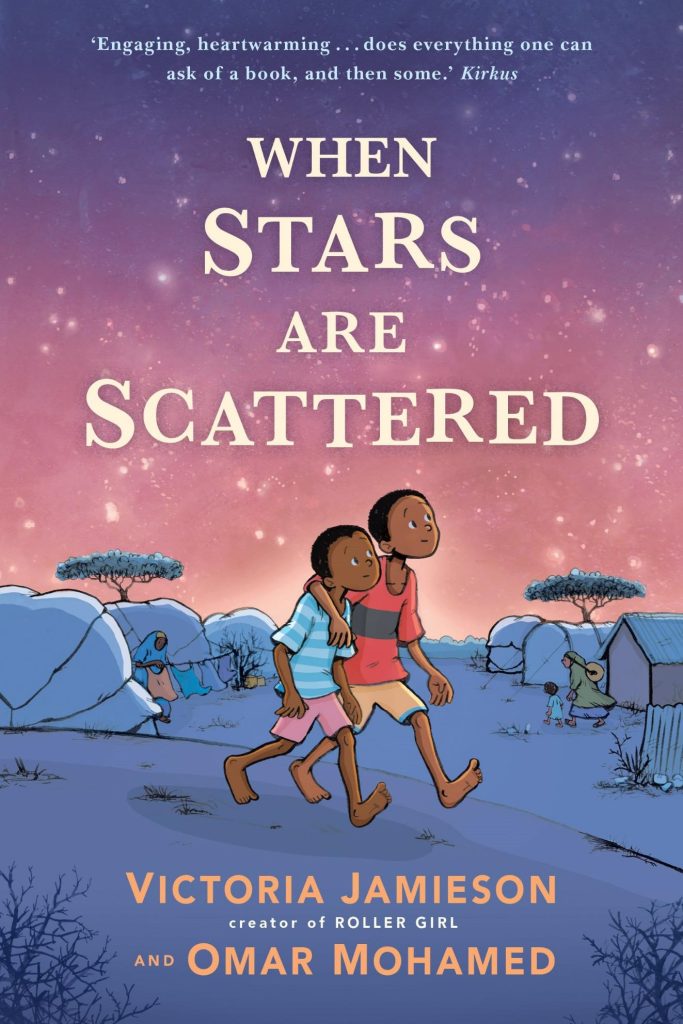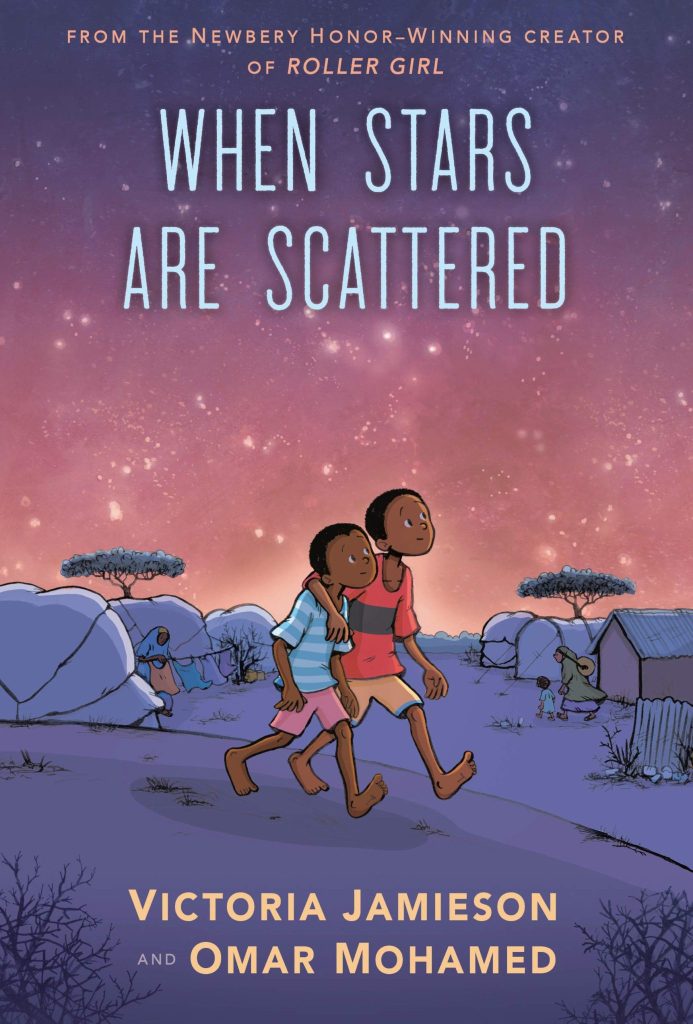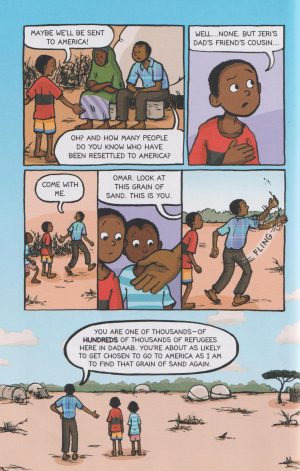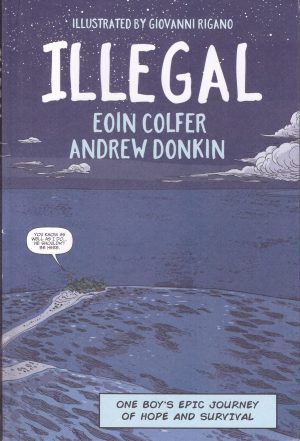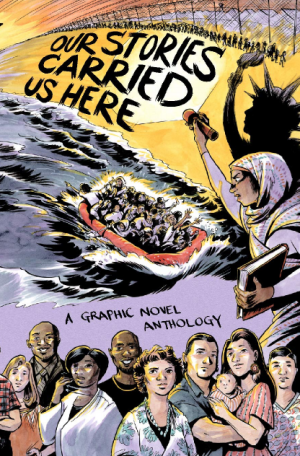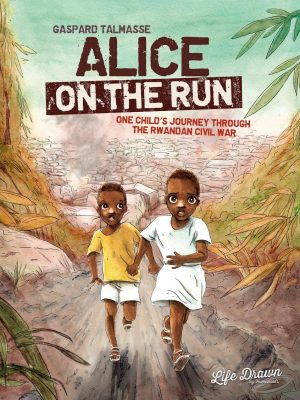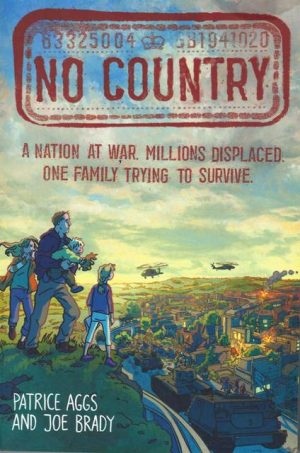Review by Frank Plowright
Omar and his younger brother Hassan live without parents in a tent in the Dadaab refugee camp in Kenya. Over a ten page introduction we learn how large the camp is, that young boys are frequently robbed of their clothes, and how on some days there’s no food so they go hungry. Omar and Hassan are grateful the elderly Fatuma looks out for them.
During the current shameful period where refugees are routinely demonised in English speaking countries, When the Stars are Scattered is an instructive reminder of why it is people flee their homelands. Omar and Hassan are from Somalia and left because their lives were endangered by a war that’s lasted seven years as their story begins. It takes place over several years and is an absolute heartbreaker, all the more so for knowing this isn’t fictionalised, but life as it was for writer Omar Mohammed.
Because he’s writing as if still the eleven year old who begins the book, Mohammed portrays situations as he understood them then. He’s convinced war in Somalia will end and he’ll be able to return home, and as he’s not going to be going to the USA there’s no need for him to attend school. Nor does he ever consider what Fatuma may have been through. It’s a full memoir of the times, so not just tragedy piled upon atrocity, meaning there are joyful moments amid the day to day concerns and boredom, yet points are made, such as Mohammed noticing how it is girls get a raw deal in the community. Mohammed has hunger as an accompaniment, and lives with the constant hope his mother might turn up at Dadaab.
Victoria Jamieson simplifies the art to the essentials for maximum understanding, yet the emotions are apparent. No-one should have to make the decisions Omar has to at his age, nor live under the conditions, and Jamieson’s panels show how any form of luxury or comfort is absent.
Some matters aren’t clarified as they would be in a book not aimed at younger readers, such as Omar’s friend Maryam not going to school any longer because her father has decreed she should be married. Her specific age isn’t given, but it’s obviously below the American age of consent. Other events are just mentioned in passing, such as the kid who committed suicide when rejected by the UN for American settlement.
The final quarter of the book continually tugs at the heartstrings. By then the narrative has jumped forward two years. Omar’s still in Dadaab, and comments on occasional visits from film crews, wondering if anyone watches the reports they make, and if so why no-one helps the refugees. We see how heartbreaking it is for others when someone is summoned for an interview that could lead to resettlement, yet passing the first stage of the process requires dredging up horrific memories. It’s during this section we learn how Omar became a refugee, and of his and Hassan’s earliest experiences of the camp. Appallingly, even those supposedly helping add to the suffering by making interviewees wait for months until a decision is made.
After the story Mohammed includes some photographs and essays providing answers to questions readers will have. He’s one of very few fortunate ones. All these years later Somalia is still at war, and Dadaab, whose population was over 200,000 in 2020, and similar camps in Kenya continue to take in refugees. When Stars Are Scattered is powerful, poignant and persuasive.
